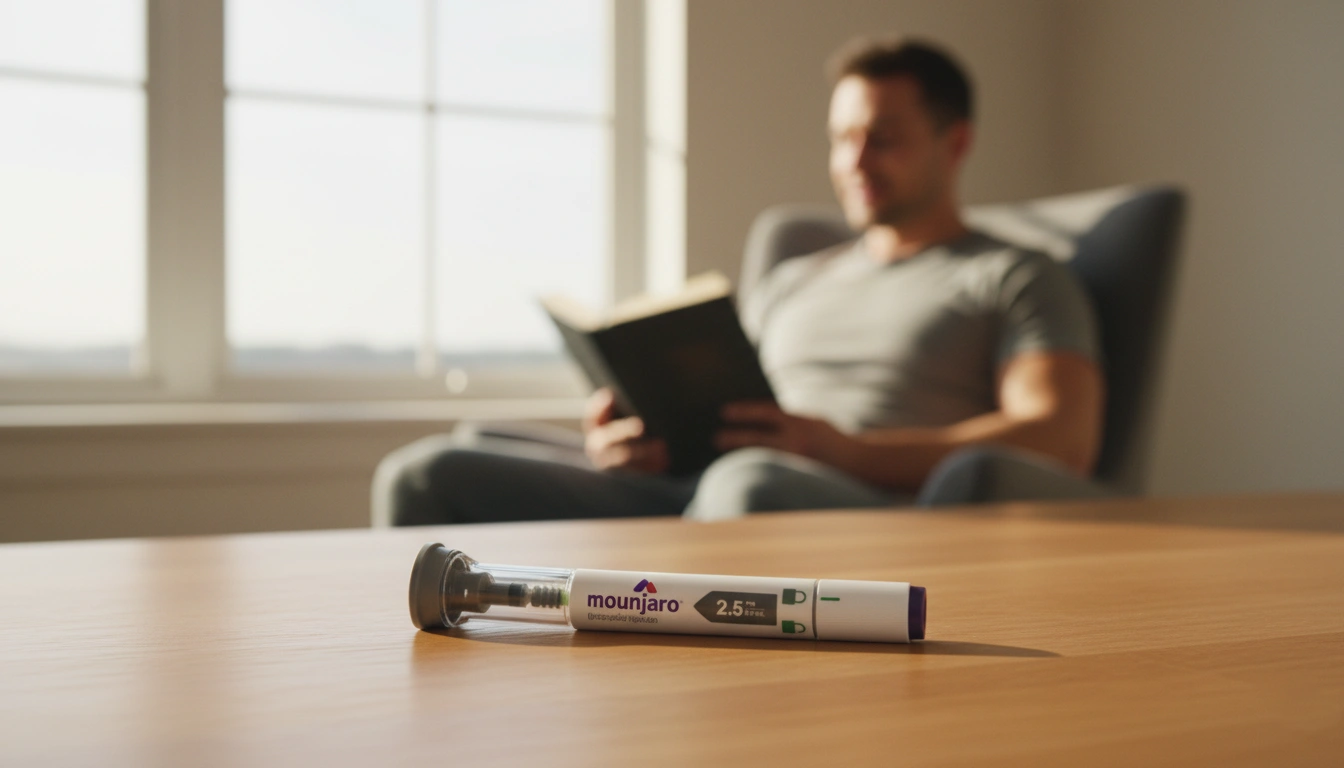Can Mounjaro Cause Low Blood Sugar? Understanding the Risks and Benefits

Introduction
When it comes to managing type 2 diabetes or embarking on a weight loss journey, Mounjaro (tirzepatide) has emerged as a promising solution. However, with any medication, understanding the potential side effects is crucial, particularly the risk of low blood sugar, or hypoglycemia. This article will delve into how Mounjaro works, its role in blood sugar regulation, and what you should consider if you’re thinking about incorporating it into your treatment plan or weight loss strategy.
Did you know that more than 30 million Americans are living with type 2 diabetes, a condition that can lead to serious health complications? As diabetes management becomes increasingly vital, innovative medications like Mounjaro are gaining attention for their dual action in controlling blood sugar and supporting weight loss.
Mounjaro has been FDA-approved for improving blood sugar control in adults with type 2 diabetes, and it has recently received approval for chronic weight management. However, as with any medication, it’s essential to understand how it works and its side effects, especially the risk of hypoglycemia. In this blog, we’ll explore the mechanisms behind Mounjaro, its potential to cause low blood sugar, and how to use it safely.
Our goal is to equip you with comprehensive information about Mounjaro and its implications for your health. By the end of this post, you’ll have a clearer understanding of whether Mounjaro might be a viable option for you and what precautions you should take.
What Is Mounjaro?
Mounjaro is the brand name for tirzepatide, a medication designed to help manage type 2 diabetes. It works by mimicking two hormones—glucagon-like peptide-1 (GLP-1) and glucose-dependent insulinotropic polypeptide (GIP)—that play significant roles in glucose metabolism and appetite regulation. This dual-action mechanism sets Mounjaro apart from other diabetes medications, as it not only helps lower blood sugar but also contributes to weight loss.
Mechanism of Action
The key actions of Mounjaro include:
- Increasing Insulin Secretion: Mounjaro stimulates the pancreas to release more insulin in response to elevated blood sugar levels.
- Reducing Glucagon Production: By inhibiting glucagon—a hormone that raises blood sugar levels—Mounjaro helps prevent excessive glucose release from the liver.
- Slowing Gastric Emptying: Mounjaro delays the rate at which food leaves the stomach, which helps in reducing post-meal blood sugar spikes and contributes to feelings of fullness.
This combination of actions not only aids in better blood sugar control but also can lead to significant weight loss, making Mounjaro a potentially beneficial option for individuals struggling with both diabetes and obesity.
Can Mounjaro Cause Low Blood Sugar?
The short answer is yes, Mounjaro can cause low blood sugar, particularly when used in conjunction with other medications that also lower blood sugar levels, such as insulin or sulfonylureas. However, it’s important to differentiate between the medication causing hypoglycemia on its own versus in combination with other treatments.
How Hypoglycemia Occurs
Hypoglycemia occurs when blood sugar levels drop below 70 mg/dL. Symptoms can range from mild (such as sweating and shaking) to severe (confusion or loss of consciousness). For those using Mounjaro, hypoglycemia can arise due to several factors:
-
Concurrent Use of Other Diabetes Medications: When Mounjaro is combined with insulin or sulfonylureas, the risk of low blood sugar increases. Adjustments to these medications may be necessary when starting Mounjaro to mitigate this risk.
-
Missed Meals or Snacks: Since Mounjaro slows gastric emptying, if a patient misses a meal or doesn’t consume enough carbohydrates, their blood sugar could drop unexpectedly.
-
Increased Physical Activity: Engaging in more exercise than usual while on Mounjaro can also lead to lower blood sugar levels, necessitating careful monitoring.
Clinical Evidence on Hypoglycemia Risk
In clinical trials, the incidence of hypoglycemia among patients taking Mounjaro was relatively low. For instance, in the SURPASS-1 trial, only 6-7% of participants experienced blood sugar levels below 70 mg/dL while on Mounjaro, compared to 1% in the placebo group. More importantly, the rates of clinically significant or severe hypoglycemia (below 54 mg/dL) were very low across the board.
Monitoring and Management
To ensure safety while using Mounjaro, individuals should:
- Monitor Blood Sugar Levels Regularly: Keeping track of blood glucose levels can help identify trends and prevent hypoglycemia.
- Consult Healthcare Providers: Discuss any changes in medication or lifestyle that could affect blood sugar management with a healthcare professional.
- Educate Yourself and Others: Understanding the signs of hypoglycemia and informing friends and family can be crucial during instances of low blood sugar.
What Are the Other Potential Side Effects of Mounjaro?
While hypoglycemia is an important consideration, Mounjaro can also cause other side effects, primarily gastrointestinal in nature. Common side effects include:
- Nausea
- Diarrhea
- Vomiting
- Constipation
- Decreased appetite
These symptoms are typically mild and may diminish as the body adjusts to the medication. However, it’s vital to monitor these effects and communicate with your healthcare provider if they become bothersome or severe.
Rare but Serious Side Effects
Though rare, some serious side effects associated with Mounjaro usage include:
- Pancreatitis: Inflammation of the pancreas can occur, particularly in individuals with a history of pancreatitis.
- Thyroid Tumors: Studies have shown an increased risk of thyroid tumors in rodents, leading to caution among patients with a family history of thyroid cancer.
- Kidney Issues: Dehydration from side effects like vomiting may lead to acute kidney injury, necessitating hydration and monitoring.
Who Should Consider Mounjaro?
Mounjaro may be suitable for adults with type 2 diabetes who also struggle with obesity, particularly those with a body mass index (BMI) of 27 or higher and at least one weight-related health condition. However, it is not suitable for everyone. Individuals with a history of medullary thyroid carcinoma, multiple endocrine neoplasia, or those who are pregnant or breastfeeding should avoid this medication.
Before starting Mounjaro, it’s essential to undergo a thorough assessment by a healthcare provider to evaluate your medical history and current medications. This step ensures that Mounjaro fits well into your individual treatment plan.
Conclusion
Mounjaro offers a promising avenue for managing type 2 diabetes and supporting weight loss. While it can lead to low blood sugar, particularly when used in conjunction with other diabetes medications, the risk is manageable with proper monitoring and guidance from healthcare providers.
As with any medication, understanding how Mounjaro works, its potential side effects, and the importance of individualized care can empower you to make informed decisions about your health. If you’re considering Mounjaro as part of your diabetes management or weight loss strategy, we encourage you to speak with your healthcare provider to determine if it’s the right option for you.
FAQ
What should I do if I experience symptoms of low blood sugar while on Mounjaro?
If you experience symptoms of low blood sugar, such as dizziness, sweating, or confusion, it’s essential to consume fast-acting carbohydrates (like glucose tablets or juice) and contact your healthcare provider for advice.
How often should I monitor my blood sugar levels when taking Mounjaro?
Regular monitoring is critical—consider checking your blood sugar before meals, at bedtime, and whenever you feel symptoms of low blood sugar.
Can I take Mounjaro with other diabetes medications?
Mounjaro can be used with other diabetes medications, but adjustments may be necessary to avoid hypoglycemia. Always consult your healthcare provider about your medication regimen.
Is Mounjaro safe for long-term use?
While Mounjaro is considered safe for long-term use in appropriate candidates, ongoing monitoring and regular check-ins with your healthcare provider are essential for assessing effectiveness and safety.
Where can I get more information about Mounjaro?
For more detailed information, consult your healthcare provider or visit the official Mounjaro website to access resources and support tailored to your needs.
If you’re considering embarking on a weight loss journey or managing diabetes with innovative solutions like Mounjaro, we invite you to take our free assessment quiz to determine your eligibility for personalized weight loss programs that align with your health goals. Let’s work together toward achieving a healthier you!

Transforming Lives, One Step at a Time
Keep reading
Mounjaro First Month Results: What to Expect
During your first month on Mounjaro (tirzepatide), expect modest but meaningful weight loss. Clinical trial data from the SURMOUNT-1 study shows that participants lost…
Mounjaro 3 Month Results: What to Expect
After three months on Mounjaro (tirzepatide), most people lose between 4% and 7% of their starting body weight. Clinical trial data from the SURMOUNT-1…
Mounjaro Weight Loss Results: Clinical Data and Real Outcomes
Mounjaro has become the most talked-about weight loss medication for a reason: the results are unprecedented. Clinical trials show average weight loss of 22.5%…



